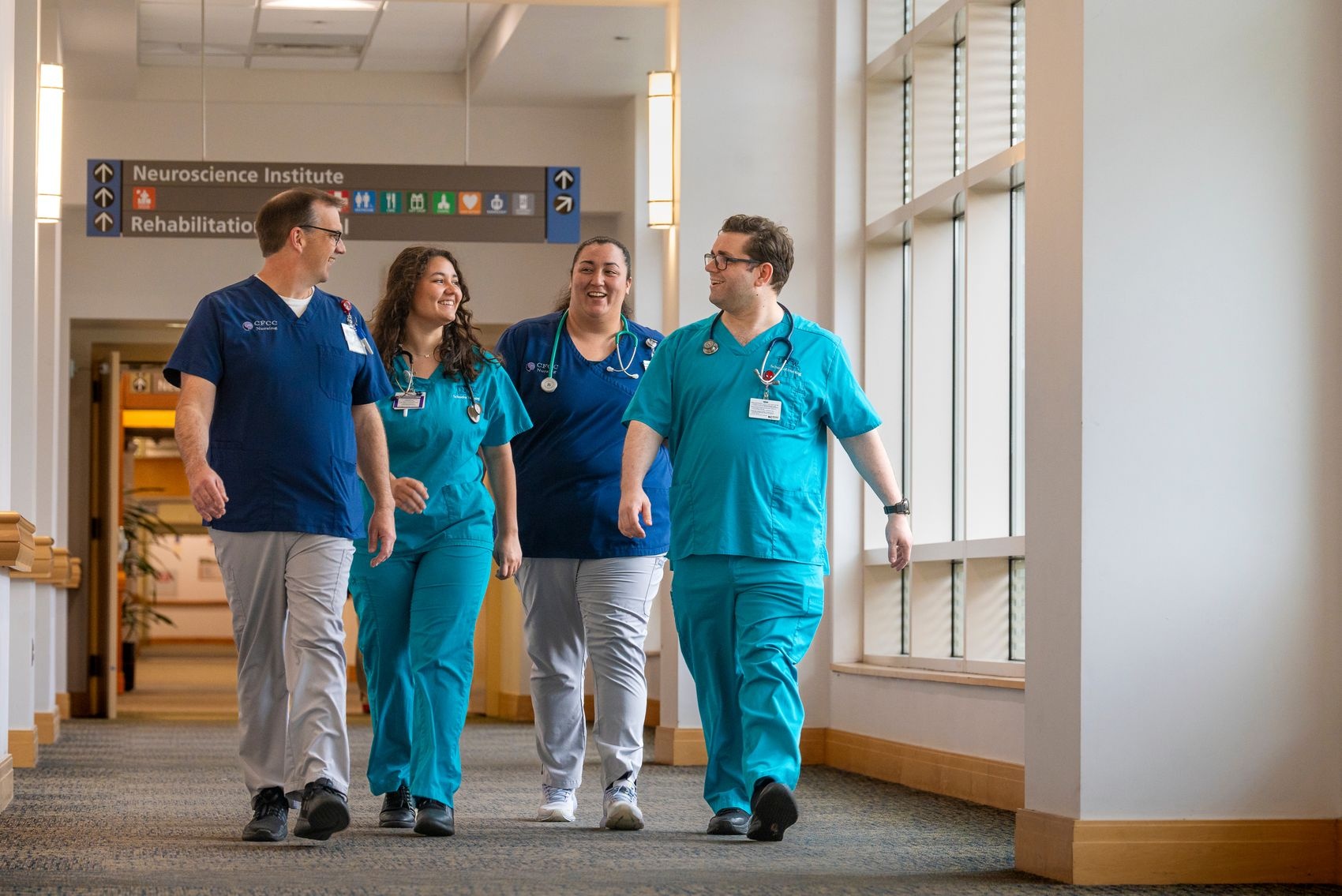County-wide partnership develops a roadmap for recruiting, training and retaining critical healthcare workers

Photo: Jeff Janowski/UNCW
Healthcare is a vital component of any thriving community, and that's why UNCW, Cape Fear Community College, New Hanover County Schools and the Wilmington Chamber of Commerce created a groundbreaking healthcare transformation superhighway. With a focus on support and retention programs, the collaboration aims to produce and retain highly skilled healthcare professionals who will bolster the local workforce.
The issue of retention in the local healthcare workforce is significant and is something educators and business leaders are keen to address. Data shows around 75% of students who complete UNCW’s Bachelor of Science in Nursing pre-licensure program choose to work elsewhere outside southeastern North Carolina, according to Chris Lantz, an associate dean in the UNCW College of Health and Human Services.
“What that means is we are essentially leveraging Wilmington’s limited resources to educate somebody else’s workforce,” he added.
Planning Routes
A solution came in the form of a collaboration with key education and business partners, with support from the Chamber of Commerce, to develop a more interconnected healthcare ecosystem. This effort aligns with the philanthropic priorities of Like No Other: The Campaign for UNCW to solve critical systemic issues.
“We had direct conversations about whether it was a production, retention or cultural problem,” said Lantz. “We recognized that it was a systemic problem, it's a complex problem, and it requires a systems-based solution that involves many partners.”
The group crafted a grant proposal to reduce the shortage of nurses, nurses’ assistants, and other critical healthcare workers in New Hanover County. In December 2023, they were awarded $22.3 million in grants from the New Hanover Community Endowment to address critical healthcare workforce challenges in the county. The grant will help fund resources and much needed wrap-around support structures to break down barriers, such as transportation, childcare, test prep or financial. It will also fund pathway programs, holistic admissions and targeted recruiting, and improvements to facilities like the UNCW simulation learning lab, which has outgrown its space, said Lantz,
a co-principal investigator for the project.
While the shortage of healthcare professionals is a systemic issue for communities throughout the U.S., many do not have the resources in place to address the issue, said Jack C. Watson, dean of the UNCW College of Health and Human Services and co-PI.
"The endowment we have in New Hanover County provides us with some resources to do that. We believe we will be able to keep a much larger percentage of our students in this county.”
Jack C. Watson
New Hanover County Schools plan to on-ramp students interested in nursing or other healthcare professions through its Career and Technical Education programs as early as middle school. This early exposure aims to broaden students’ horizons and empower them to pursue professions in healthcare, laying the groundwork for future educational and employment opportunities.
“These are, sometimes, professions the students didn’t see themselves being able to attain,” said Watson.
Building Bridges
Prospective healthcare students recruited through New Hanover Schools or targeted recruiting by UNCW admissions will choose route-to-degree programs at CFCC or UNCW. Once they complete their degree programs, they will cross a bridge that leads to either employment at local healthcare facilities or an advanced degree. Early engagement between employers and students is also critical to the collaboration’s success, said CFCC Health and Human Services Dean Mary Ellen Naylor, a co-PI for the project.
“It’s important that our students build relationships with our local healthcare partners and that we foster a culture that makes students want to learn here and stay in our region when they graduate,” she said. “Continuous dialogue with healthcare employers and partners is essential in creating pathways and opportunities for career advancement in nursing and other healthcare professions.”
School officials will spend the next two years designing, planning and implementing initiatives that will lay the foundation for the innovative healthcare workforce superhighway, while the Chamber continues to serve as a critical conduit to area employers and schools. Additionally, Novant Health has committed $2.5 million for nursing scholarships each to UNCW and CFCC over five years to assist with healthcare workforce development.
“The endowment has invested in us a tremendous responsibility to operationalize this project that positions UNCW, CFCC and New Hanover County Schools and Wilmington Chamber of Commerce, in collaboration with employers, to do something impactful making our community a better place,” said Lantz. “It’s about building community.”
This article has the following tags: myUNCW - Students Research & Innovation Engagement myUNCW - Faculty & Staff CHHS - College of Health & Human Services myUNCW


